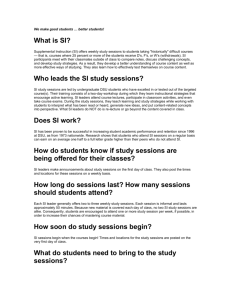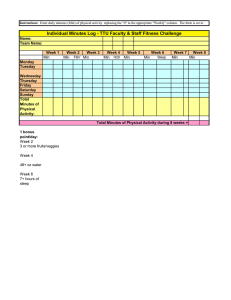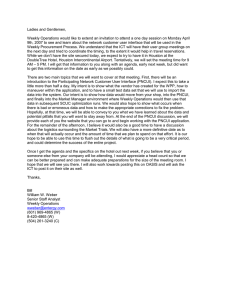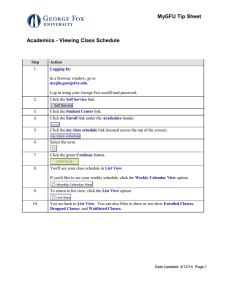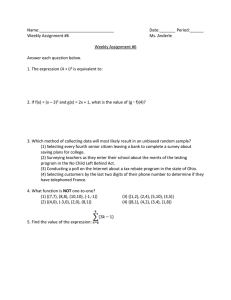M A S T E R W E E K L Y S C H E D U L E 1. Fill in the following
advertisement
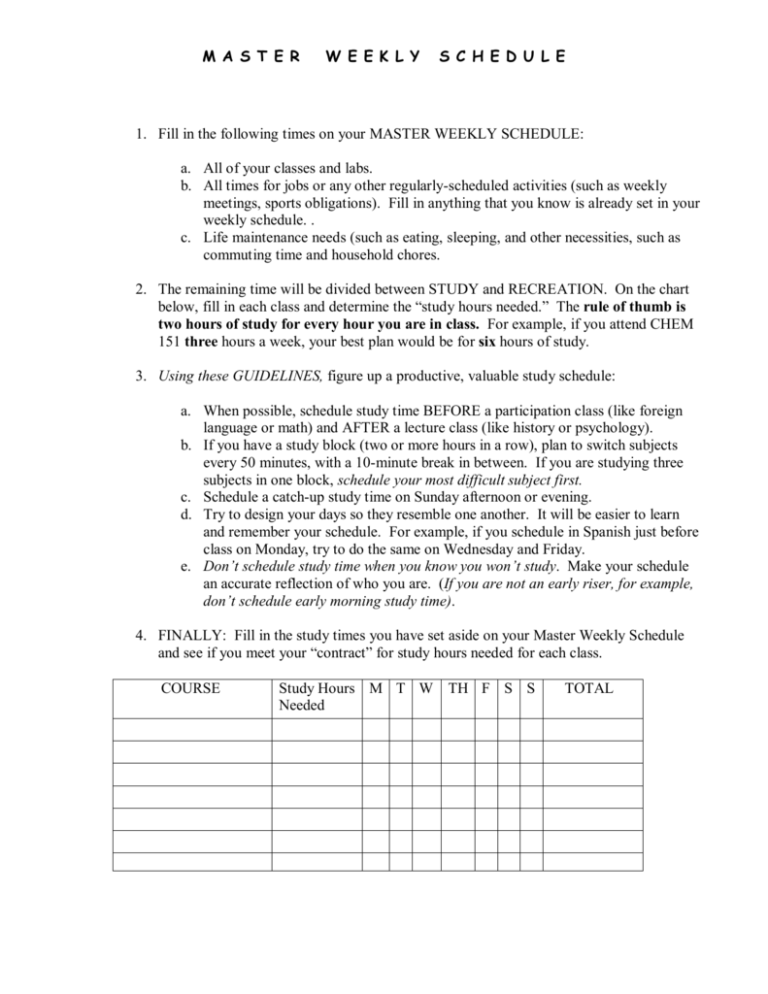
M A S T E R W E E K L Y S C H E D U L E 1. Fill in the following times on your MASTER WEEKLY SCHEDULE: a. All of your classes and labs. b. All times for jobs or any other regularly-scheduled activities (such as weekly meetings, sports obligations). Fill in anything that you know is already set in your weekly schedule. . c. Life maintenance needs (such as eating, sleeping, and other necessities, such as commuting time and household chores. 2. The remaining time will be divided between STUDY and RECREATION. On the chart below, fill in each class and determine the “study hours needed.” The rule of thumb is two hours of study for every hour you are in class. For example, if you attend CHEM 151 three hours a week, your best plan would be for six hours of study. 3. Using these GUIDELINES, figure up a productive, valuable study schedule: a. When possible, schedule study time BEFORE a participation class (like foreign language or math) and AFTER a lecture class (like history or psychology). b. If you have a study block (two or more hours in a row), plan to switch subjects every 50 minutes, with a 10-minute break in between. If you are studying three subjects in one block, schedule your most difficult subject first. c. Schedule a catch-up study time on Sunday afternoon or evening. d. Try to design your days so they resemble one another. It will be easier to learn and remember your schedule. For example, if you schedule in Spanish just before class on Monday, try to do the same on Wednesday and Friday. e. Don’t schedule study time when you know you won’t study. Make your schedule an accurate reflection of who you are. (If you are not an early riser, for example, don’t schedule early morning study time). 4. FINALLY: Fill in the study times you have set aside on your Master Weekly Schedule and see if you meet your “contract” for study hours needed for each class. COURSE Study Hours M T W TH F S S Needed TOTAL
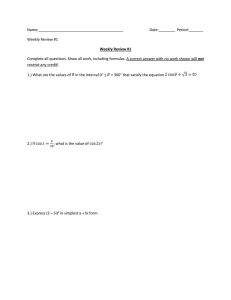
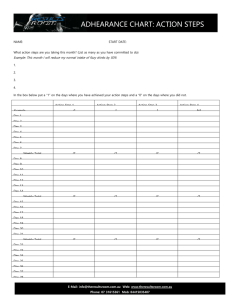
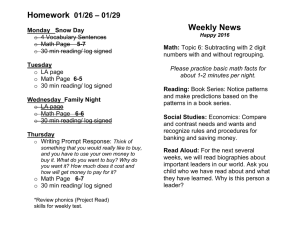

![Dear [fname]:](http://s2.studylib.net/store/data/015347363_1-a73ffec0d926f7c901482572529b752a-300x300.png)
